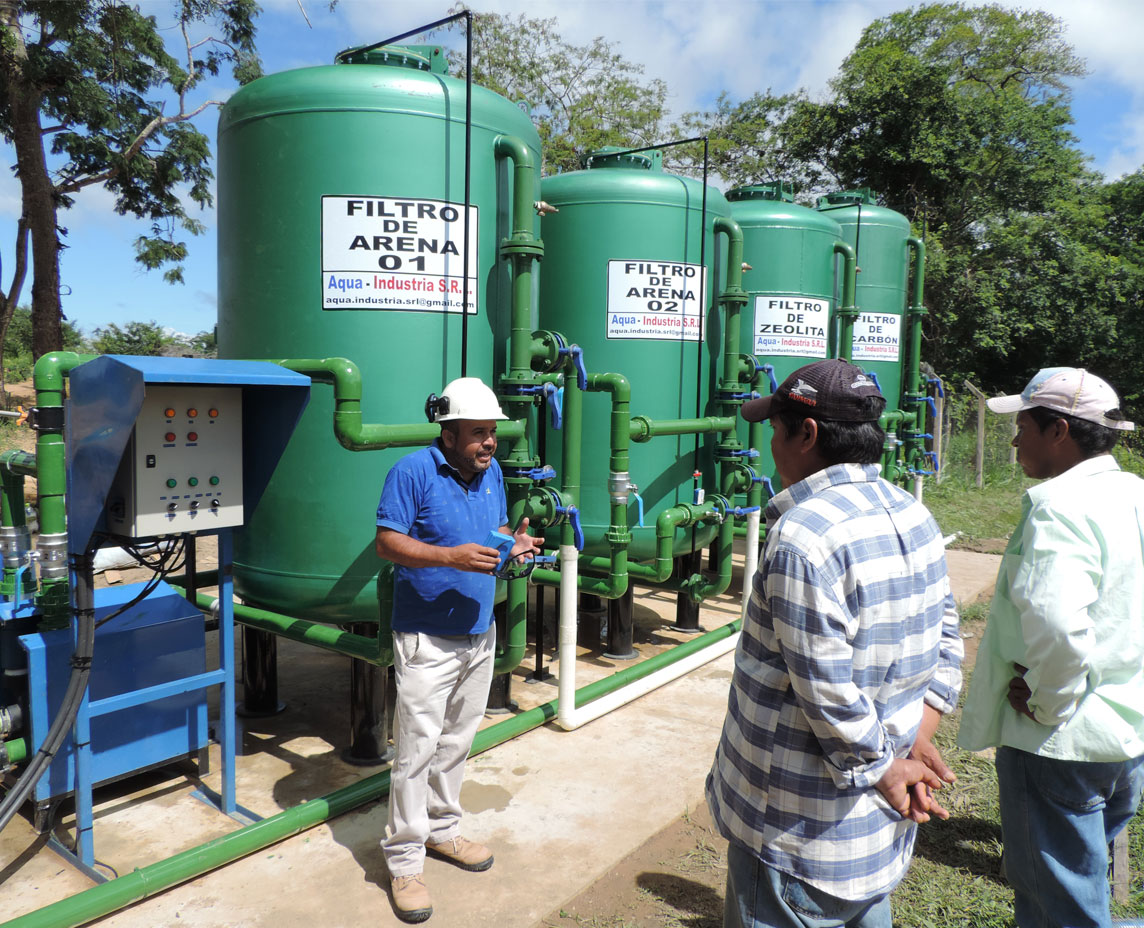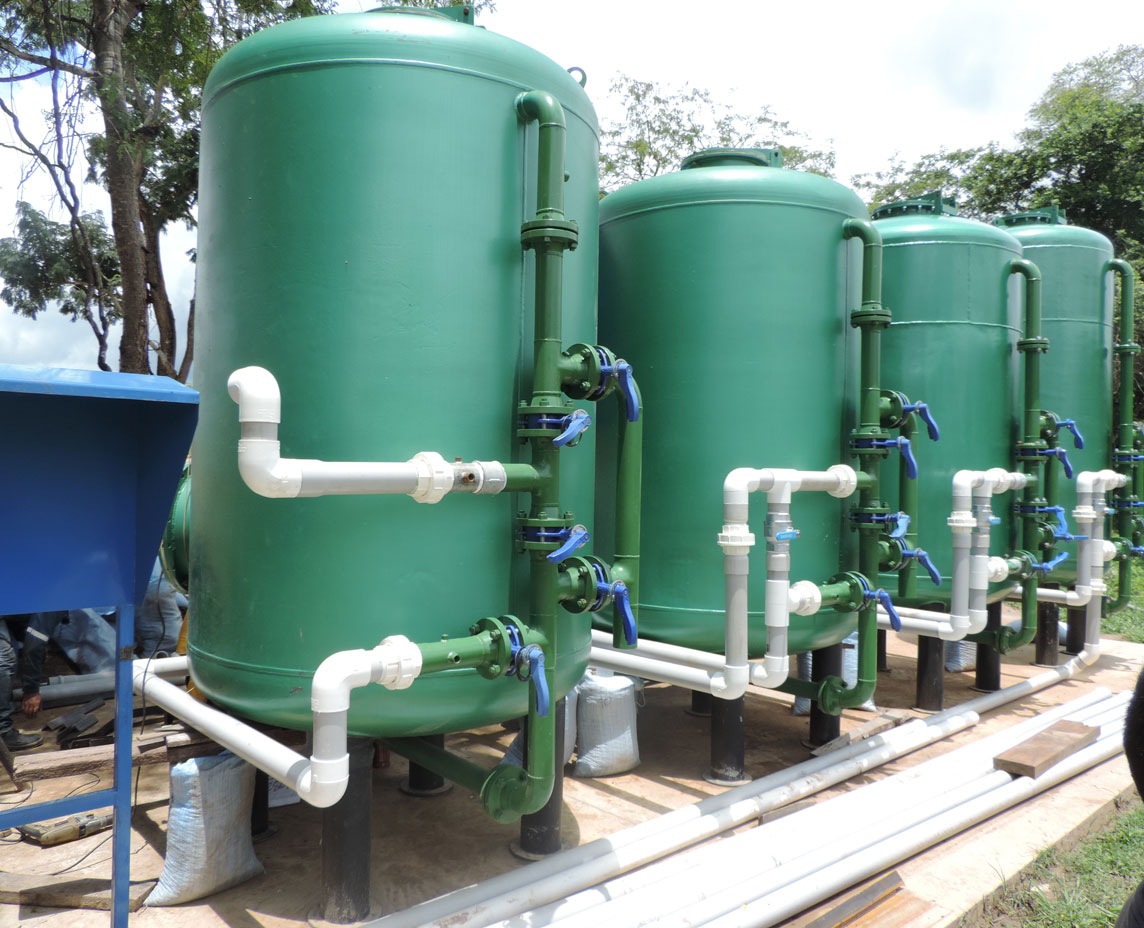On March 22, the World Water Day is celebrated all over the world.
Guaranteeing the availability of water and its sustainable management and sanitation for all, Sustainable Development Goal 6, is an essential human right for the realization of all human rights.
The 2030 agenda of the United Nations aims to achieve universal and equitable access to potable water at an affordable price for all in that year.
Today, the Social Promotion Foundation celebrates this day with the good news that drinking water arrives in San Miguel de Velasco in Bolivia.
The population of the Bolivian Chiquitania faces vulnerabilities linked to the lack of access to the most basic rights, such as water, given the remote location of this region.
It has not been until now, almost 300 years after the foundation of San Miguel de Velasco, when its 4,365 inhabitants have had access to drinking water in their own homes, also contributing to reducing acute diarrheal diseases in children under the age of 5 years, infections urinary diseases and diseases related to sexual and reproductive health of women.
The Social Promotion Foundation project, developed in consortium with Association for the Eradication of Poverty (AFEP), and financed by the Regional Government of Madrid, has allowed consolidating this human right, through the installation of a treatment plant that allows drinking water to 17, 5 liters of water per second. In this way, each person can have 100 liters of drinking water per day.
But this important achievement is not an isolated event. To contribute to the sustainability of the plant, training has been carried out for the technical personnel who are in charge of periodically verifying its operation and carrying out rapid tests to check the water quality.
In addition, a Potable Water Committee has been formed, in a total community and representative manner. This committee makes citizens participate, not only in access to the right to water but also in its management. This supposes the first step for the creation of a municipal regulation that allows creating a cadaster of potable water consumers, contributing to the municipal democratic governance.
Finally, through workshops, the project has influenced the habits of efficient use of water and good hygienic practices for the prevention of diseases. As reinforcement to this activity, during the year of execution of the project, free brigades have been organized in the neighborhoods, formed by a multidisciplinary team of the Municipal Hospital, which serves the most vulnerable population.






